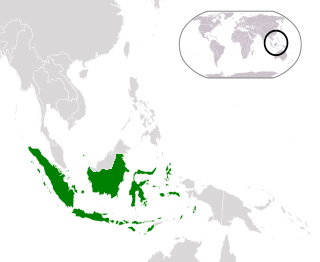
The United Nations Security Council (UNSC) is one of the six principal organs of the United Nations (UN) and is charged with ensuring international peace and security, recommending the admission of new UN members to the General Assembly, and approving any changes to the UN Charter. Its powers as outlined in the United Nations Charter include establishing peacekeeping operations, enacting international sanctions, and authorizing military action. The UNSC is the only UN body with authority to issue resolutions that are binding on member states.

The United Nations General Assembly, UNGA; French: Assemblée générale des Nations unies, AGDNU is one of the six principal organs of the United Nations (UN), serving as its main deliberative, policymaking, and representative organ. Currently in its 79th session, its powers, composition, functions, and procedures are set out in Chapter IV of the United Nations Charter.

The member states of the United Nations comprise 193 sovereign states. The United Nations (UN) is the world's largest intergovernmental organization. All members have equal representation in the UN General Assembly.

A United Nations Security Council resolution (UNSCR) is a United Nations resolution adopted by the Security Council (UNSC), the United Nations (UN) 15-member body charged with "primary responsibility for the maintenance of international peace and security".
A United Nations General Assembly resolution is a decision or declaration voted on by all member states of the United Nations in the General Assembly.

A United Nations resolution is a formal text adopted by a United Nations (UN) body. Although any UN body can issue resolutions, in practice most resolutions are issued by the Security Council or the General Assembly, in the form of United Nations Security Council resolutions and United Nations General Assembly resolutions, respectively.
Chapter VII of the United Nations Charter sets out the UN Security Council's powers to maintain peace. It allows the Council to "determine the existence of any threat to the peace, breach of the peace, or act of aggression" and to take military and nonmilitary action to "restore international peace and security".
The following outline is provided as an overview of and topical guide to the United Nations:

United Nations Security Council Resolution 86, adopted on September 26, 1950, having found that the Republic of Indonesia was a peace-loving State which fulfilled the conditions laid down in Article 4 of the United Nations Charter, the Council recommended that the UN General Assembly admit the Republic of Indonesia to membership in the United Nations.

His Majesty's Government in Belize, also referred to as the Belizean Government is the democratic administrative authority of Belize, a constitutional monarchy under a parliamentary democracy. It was formed in 1981 after gaining sovereignty from the United Kingdom. The constitution is the supreme law of Belize.

The permanent representative of Barbados to the United Nations is in charge of the Barbados's diplomatic mission to the United Nations Headquarters in New York City, United States of America. The current office holder is François Jackman, a career diplomat and the son of Oliver Jackman, the first Permanent Representative. Apart from the Barbados mission to the UN in New York, there is another Barbadian mission based at the UNO office in Geneva, Switzerland, and Nairobi, Kenya.

United Nations Security Council Resolution 2016 was unanimously adopted on 27 October 2011 on the situation of Libya during the Libyan Civil War.
Indonesia officially became the 60th member of the United Nations on 28 September 1950, in accordance with the United Nations Security Council Resolution 86 two days before, and the United Nations General Assembly resolution number A/RES/491 (V) on the "admission of the Republic of Indonesia to membership in the United Nations", less than one year after the independence of Indonesia's by the Netherlands at the Dutch–Indonesian Round Table Conference in the Hague.

The United Nations Aouzou Strip Observer Group (UNASOG) was a United Nations observation mission that was deployed to the Aouzou Strip, in the Republic of Chad. Established in the wake of the Aouzou Strip dispute under Security Council Resolution 915 of 4 April 1994, the mission's mandate was "to verify the withdrawal of the Libyan administration and forces from the Aouzou Strip in accordance with the decision of the International Court of Justice", rendered on 3 February 1994 in the Libya–Chad Territorial Dispute case.

United Nations Security Council Resolution 2623 called for the eleventh emergency special session of the United Nations General Assembly on the subject of the 2022 Russian invasion of Ukraine. Albania and the United States introduced the resolution before the United Nations Security Council, which adopted it on 27 February 2022. Russia voted against while China, India and the United Arab Emirates abstained. As this was a procedural resolution, no permanent member could exercise their veto power.

United Nations General Assembly Resolution ES‑11/1 is a resolution of the eleventh emergency special session of the United Nations General Assembly, adopted on 2 March 2022. It deplored Russia's invasion of Ukraine and demanded a full withdrawal of Russian forces and a reversal of its decision to recognise the self-declared People's Republics of Donetsk and Luhansk.

United Nations General Assembly Resolution ES‑11/2 is the second resolution of the eleventh emergency special session of the United Nations General Assembly, adopted on 24 March 2022, following Resolution ES-11/1 which was adopted on 2 March 2022. Resolution ES‑11/2 reaffirmed the UN's former commitments and obligations under its Charter, and reiterated its demand that Russia withdraw from Ukraine's recognized sovereign territory; it also deplored, expressed grave concern over and condemned attacks on civilian populations and infrastructure. Fourteen principles were agreed.

United Nations General Assembly Resolution 491 was adopted on 28 September 1950 for the admission of Republic of Indonesia to the United Nations. Accordingly to the recommendation by the United Nations Security Council Resolution 86, two days before the 289th UN General Assembly meeting, in which 10 countries voted for the admission of Indonesia meanwhile China abstained from the voting.












